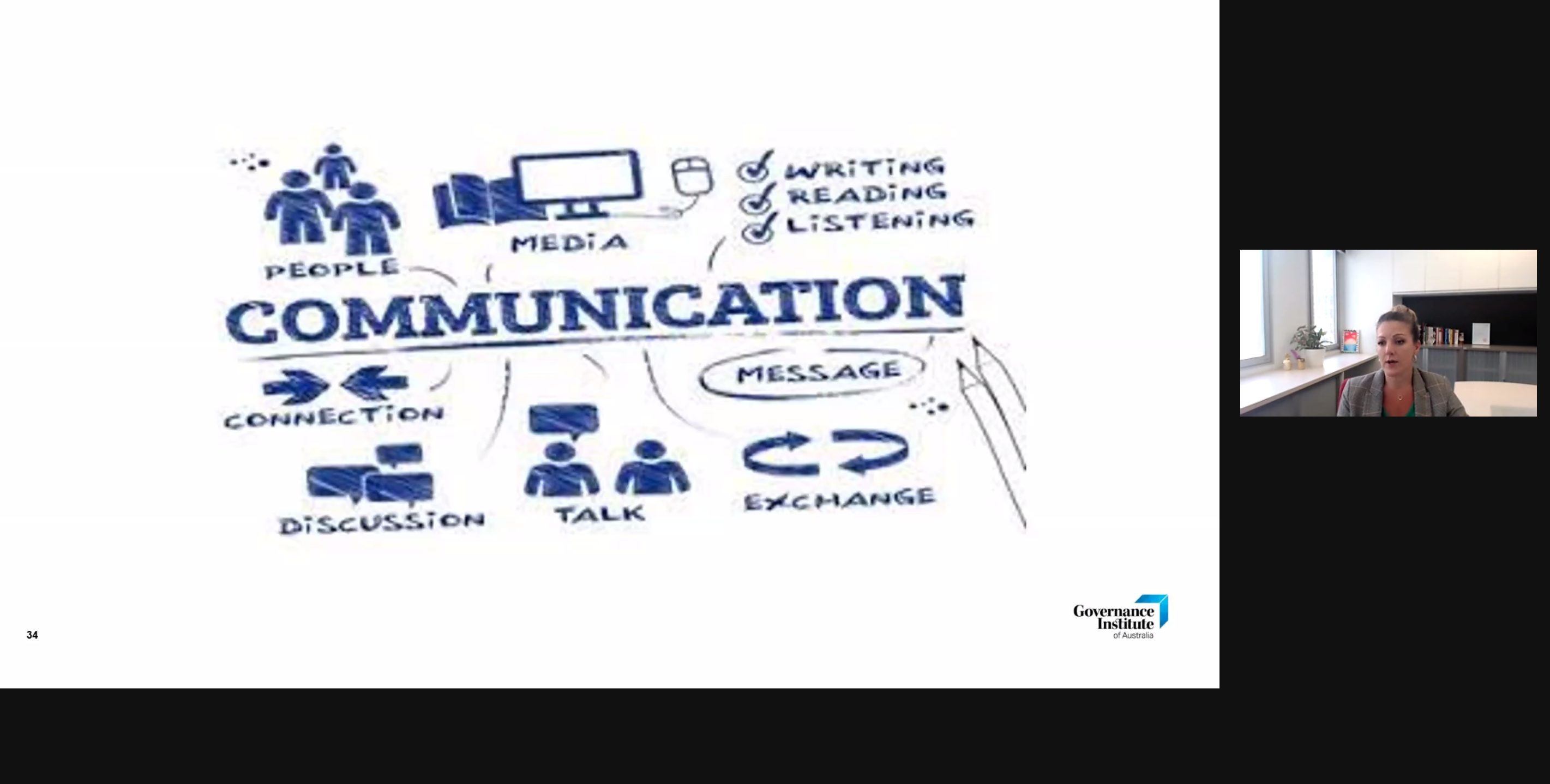Ethics and Perception of Lawyers in 2021 – Findings from The Governance Institute of Australia
This week I attended a webinar run by the Australasian Legal Practice Managers Association with guest speaker Megan Motto, CEO at The Governance Institute of Australia. There were some great points pertinent to my law industry clients and contacts – so here are my 6 key take-aways.
Pictured: Slide on importance of brand strategy, with Megan Motto, CEO of The Governance Institute of Australia, presenting for ALPMA.
My key take-aways for lawyers:
1. The Governance Institute’s Ethics Index 2020 revealed that perceptions of how ethical/trustworthy law as an industry is is fairly low (in the bottom 10 of 20 industries listed) with 34% of those surveyed (a cross-section of Australian society) saying they saw lawyers as unethical. However, people saw their personal lawyer as someone whom they could trust. The reasoning for this gap was that while respondents had built strong relationships with their own lawyers, the reputation/brand perceptions of lawyers and law firms in general were not matching this.
2. From a recent Deloitte study: ‘Ethics is good for the economy’. On an individual level, strong ethics in the workplace leads to better mental health and better income; on a business level, attention to ethics leads to an improved reputation, improved relationships and increased returns.
3. What does building an ‘ethics infrastructure’ look like? While lawyers pay attention to ethics and are among the professionals better equipped to talk about it, businesses need to ensure they have an infrastructure in place that involves a way to measure ethics, to elevate public discourse on the topic, to educate staff and stakeholders, to embed its importance into the culture, and to support ethics in government.
4. The Edelman Trust Barometer for 2021 reveals that the pandemic lifted feelings of trust in business especially, and to a lesser extent, in government and even in media. The business sector is the only one seen as both Ethical and Competent – the two measurements of trust on the scale. This represents an opportunity for law firms to highlight and build on trust, for example by championing legislative changes, or by taking responsibility as a thought leader on topics of ethics as they apply to societal issues.
5. While a lawyer or law firm may be doing all the right things in terms of ethics, this does not necessarily equate to a perception of trust (as we see in Point 1). The recommendation given was to ensure you have a robust brand strategy that highlights and addresses the gap between how you want to be perceived and what you are actually putting out there! Megan Motto suggests strategic steps such as assessment, rebranding and communications plans. In my experience working with lawyers and law firms, I would add here that there are always gaps in brand communication – sometimes it can be a lack of meaningful differentiation or value positioning, lack of a strong marketing/communications approach, lack of understanding by staff on what the brand messaging is and/or how to communicate it effectively with networks and audiences, or a lack of engagement and confidence of staff in how they express the brand in day-to-day business.
6. Finally, Megan spoke about the ‘shadow that you cast as the leader’; in my words, this is your ‘leadership personal brand’. It’s how you present as a leader, how you communicate what matters to you etc. For example, there are people who say ‘I’m really passionate about…’ but are they demonstrating their work in that area?
What about the role of the board?
For those involved with boards – I also asked Megan where the board’s role sits in leading a perception of trust as it relates to brand – I was pleased to hear (despite occasional feedback that brand is not the board’s domain – I suspect due to a lack of understanding of how it interacts with organisational culture) that the viewpoint expressed was that brand perception is not just up to the CEO and team – the tone and priority must start at the top, through what is given attention in board meetings and what resources are put towards assessment and strategy – this signals to the CEO that this is a central focus, and has a flow-on effect into the culture of the organisation, according to Megan. I’ll be writing about an approach to brand at board level over the next couple of weeks on the blog.

